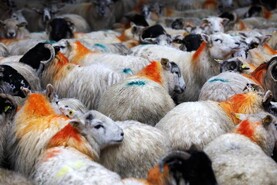Essential veterinary medicine costs could rise by 40% due to the Department of Agriculture’s interpretation of EU rules on veterinary medicines, ICOS and the Independent Licensed Merchants Association (ILMA) have warned.
The Department has so far refused to change an opinion that only vets will be allowed to issue prescriptions for anti-parasitic medicines from January 2022, ICOS and ILMA have said.
Damage
“By sticking rigidly to this interpretation of a new EU regulation, Minister McConalogue will preside over immense damage to the rural and agri-economy.
“Despite the availability of a special EU derogation specifically written to avoid this situation, [the Department] will block local merchants, co-ops and pharmacists from providing advice and choice of essential and frequently required medicines at point of sale.
“Instead, farmers will have to go to a vet, pay for a prescription and, in reality, will feel pressured to purchase from the vet.
“ICOS and private merchants suggest that essential animal medicine costs will rise by 40% due to the market distortion of the change, creating untold damage to already fragile margins. In addition the extra time, loss of credit and resulting closure of rural merchants’ premises, pharmacies and co-op branches, that supply all manner of necessities to the rural community, will mean rural jobs will be lost.”
Solution
Offering a solution, ICOS and ILMA have said that vets could be allowed to only issue prescriptions but not sell the veterinary medicines. “This would protect competition in the market and avoid any potential conflict of interest by the prescriber.”
ICSA animal health chair Hugh Farrell said the proposals are akin to taking a sledgehammer to the way farmers take care of the everyday needs of their livestock.
“They are completely over the top and the intervention of Minister McConalogue is now required,” he said.






 This is a subscriber-only article
This is a subscriber-only article










SHARING OPTIONS: